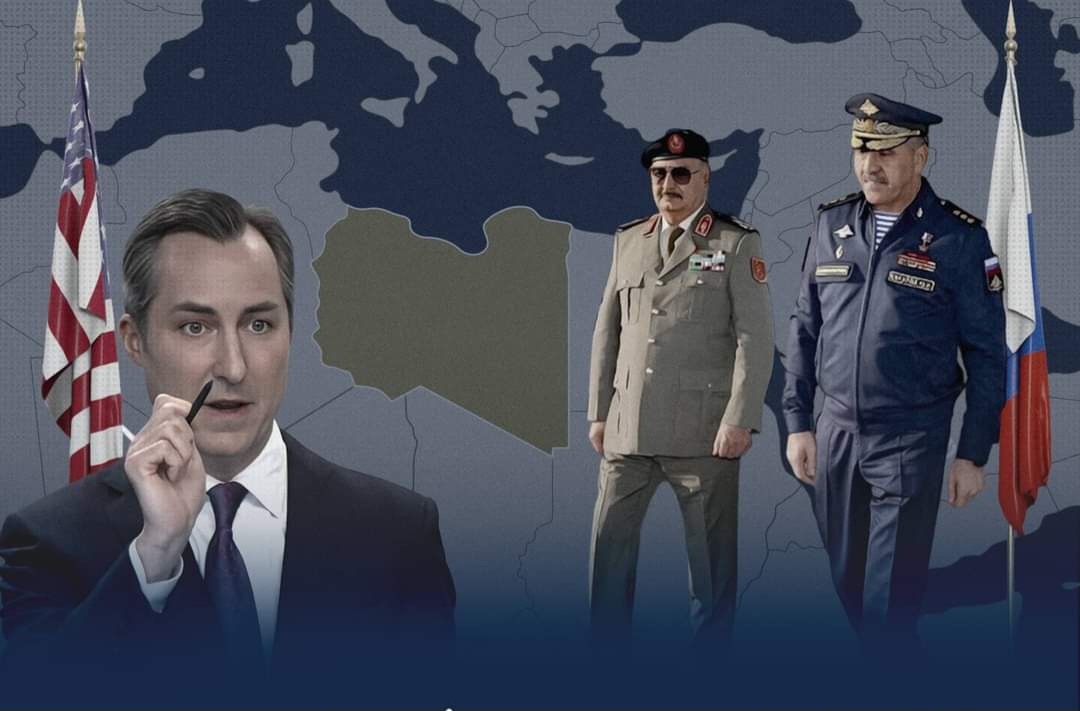260
Recent developments in Libya have seen an increase in reports of bolstered Russian military presence in the country’s east. According to official U.S. statements, there are an estimated 1,800 Russian fighters in the region, raising concerns in Washington and among its allies.
In contrast, Moscow denies any intentions of establishing permanent military bases, asserting that its cooperation with forces in eastern Libya falls within the bounds of routine bilateral relations.
This development is part of a broader geopolitical contest in the region, as international powers vie to strengthen their influence in Libya and the African Sahel. Questions arise about the implications of this situation for Libya’s future and regional security.
Washington Raises Its Voice
In an official statement, State Department spokesperson Matthew Miller told Alhurra TV on Friday that the number of Russian fighters in eastern Libya is approximately 1,800, according to reports. He noted that Moscow has not concealed its ambition to deepen its foothold in Libya.
The United States has expressed concern over recent reports of Russian naval ships unloading military equipment in Libya, warning of Moscow’s attempts to use Libya as a base to destabilize the Sahel region.
The State Department spokesperson emphasized that the U.S. will continue to respect Libya’s sovereignty and support the UN-facilitated dialogue aimed at unifying the country through political means alone.
American Concerns
In mid-April, “Fawasel” published a video showing a Russian naval vessel unloading trucks, weapons, and military equipment at the Hariga Port in Tobruk. Sources told “Fawasel” that this was at least the fifth shipment of military gear to Tobruk since the beginning of March, revealing that Russian forces stationed at the Tobruk port oversaw the unloading, which has heightened Washington’s fears of increased Russian entrenchment on the African coast.
Republican Senator Pete Ricketts’ statement amplified American concerns about the potential establishment of a Russian naval base in Libya. He confirmed that Moscow had sent Russian special forces and thousands of mercenaries from the battlefields of Ukraine to Libya after President Vladimir Putin’s meeting with General Commander Khalifa Haftar last September. Ricketts added that Russian ships have offloaded thousands of tons of military equipment in Tobruk, turning eastern Libya into a Russian weight station for locations like Niger, Mali, and Burkina Faso, as he described.
America’s Plan to Counteract
In an extensive hearing before the U.S. Senate Foreign Relations Committee, Jennifer Gavito, nominee for U.S. Ambassador to Libya, outlined a comprehensive vision of the challenges and opportunities facing American diplomacy in Libya. This was part of her effort to secure her appointment as ambassador in Tripoli and to advance U.S. priorities and interests in Libya and the region. She promised to take the reports of Russian forces seriously, calling it the biggest challenge facing Libya, alongside the issue of lacking a unified government, which exacerbates Russia’s influence in the divided country.
Destabilizing Influence
The American ambassadorial nominee also warned about Russia’s growing influence in eastern Libya, stating that Moscow is deepening its presence by trafficking weapons through and into Libya, preparing to further destabilize the Sahel region and the southern flank of NATO.
Does Russia Have a Naval Base in Libya?
The United States claims that Russia may be preparing to establish a naval base in Libya to extend its influence over the African coast and facilitate its penetration into the continent, based on media reports about the presence of a number of “African Corps” forces directly managed by the Kremlin.
However, Russian Ambassador to Libya Aidar Aganin denied earlier this month the U.S. claims about the potential establishment of a naval base, explaining that the reciprocal visits between eastern Libya and Russia, especially those by Russian Deputy Defense Minister Yunus-Bek Yevkurov to Benghazi, are within the scope of military cooperation with the Libyan General Command.
Repeated reports from the EU-funded “All Eyes On Wagner” platform have noted the increasing number of Russian fighters in Libya and Russia’s intention to create a base to manage its military and political affairs in Africa.
Based on the above, the U.S. aims to counter Russian expansion in Libya by forming a military coalition in partnership with the European Union and Libya, with plans to announce it by the end of the year.

